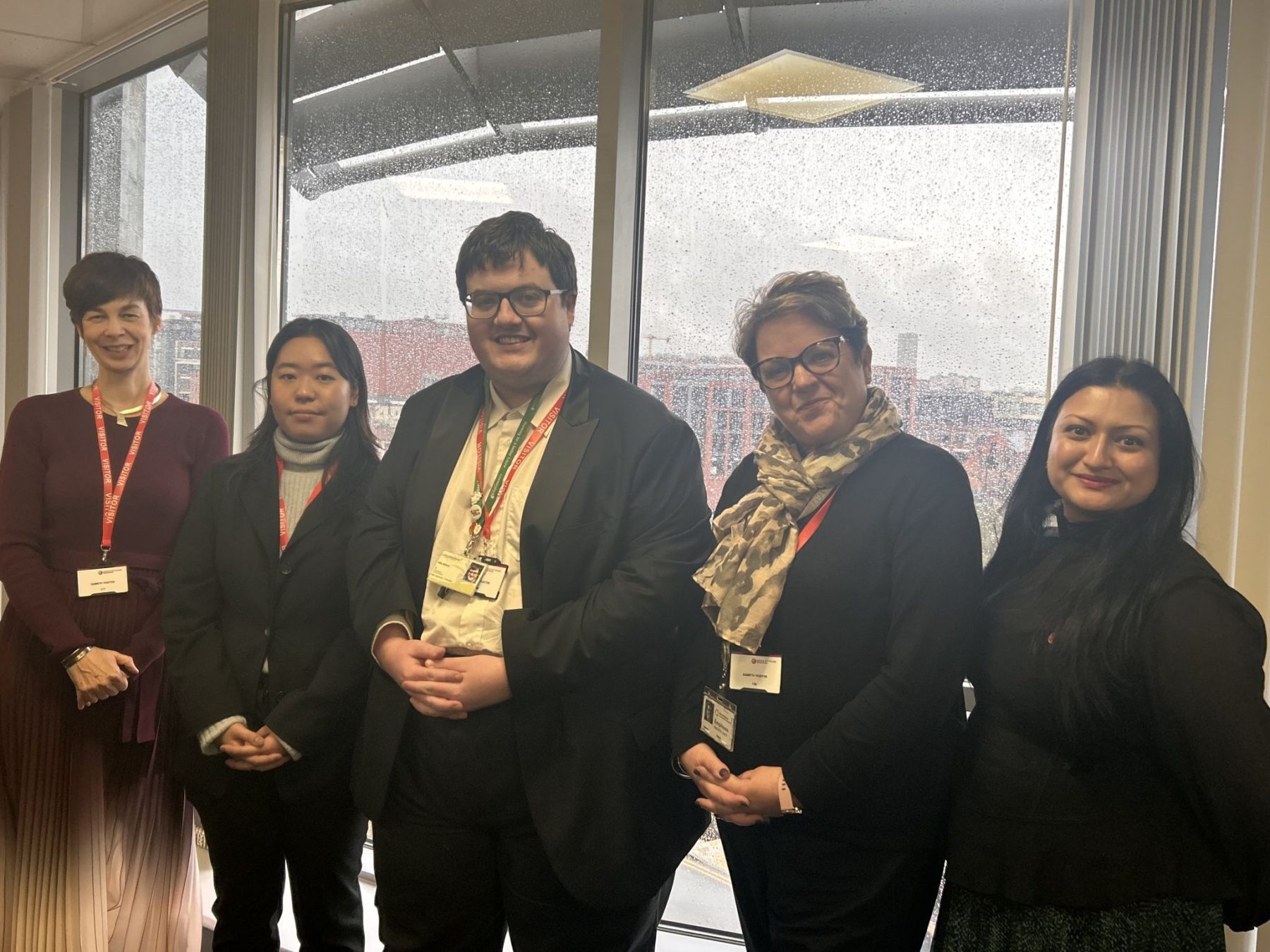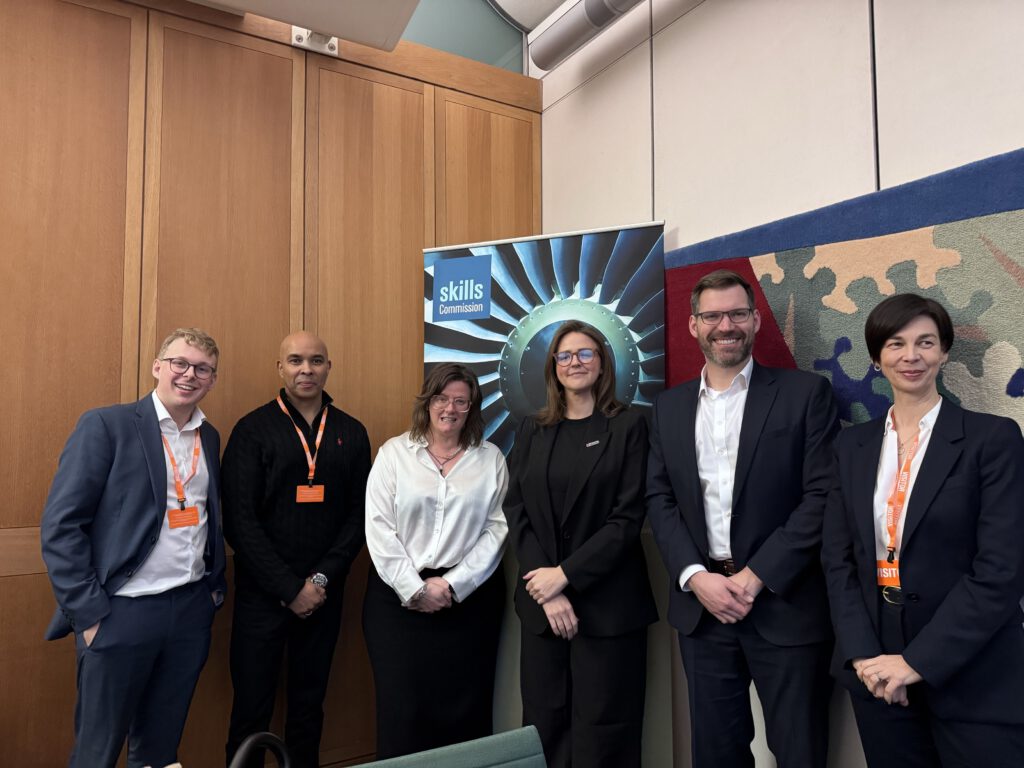The personal, societal, and economic costs of the UK’ s growing number of young people unemployed or inactive are stark – policymakers must act boldly, setting ambition to be the best globally at ensuring our young people enter and thrive in education, employment, and training pathways.
Cross-party think tank Policy Connect and the Skills Commission have launched a new inquiry, ‘Earning or Learning: A New Agenda for Youth NEET Reduction’, to develop an ambitious policy agenda that aims for the UK to have the lowest percentage of young people who are NEET (Not in Education, Employment or Training) in the OECD by 2050.
The Earning or Learning inquiry will be co-chaired by a cross-party group of parliamentarians – Lauren Edwards MP (Labour), Josh Babarinde MP OBE (Liberal Democrats), and Lord Shinkwin (Conservative). Youth Futures Foundation, the What Works Centre for youth employment, who defined this world leading measure are the headline sponsor of the inquiry and experts on the topic. The inquiry has cross-sectoral backing with key stakeholders including Jisc, NOCN Group, University of Derby, and the Institute of the Motor Industry (IMI) also sponsoring the inquiry.
More than 900,000 young people aged 16 to 24 are NEET in the UK, approximately one in eight young people. The NEET rate is stubborn, having remained around 12% or higher for several decades. The cost to young people, communities, and the UK economy is wide ranging – higher NEET rates mean a smaller labour force, poorer health outcomes, and more entrenched social inequality. As per the latest Labour Market Statistics published by the ONS on 18 February 2025, the UK unemployment rate for young people aged 16 to 24 was 14.8%, up from 11.9% a year prior.
The impact of NEET is particularly profound for marginalised young people from disadvantaged backgrounds. There are serious ethnic inequalities, with young people from Black Caribbean backgrounds having a NEET rate more than double that of young people with White British backgrounds. Regional inequalities are also substantial, with NEET rates of 15% in the North East of England compared to 9.4% in the South West. Earning or Learning will draw from a range of experts, available evidence, and the perspectives of young people to outline the public policy direction and solutions needed to bring around the systems change young people need to have better futures.
Amidst Government efforts to tackle economic inactivity, grow the economy, and spread opportunity, the case for increasing youth participation in education and employment is clear. Analysis has shown that for every young person who society fails to help avoid becoming NEET, the cost to the economy is £104,300. Earning or Learning will aim to develop a strategic framework for reducing the UK’s NEET rate to the lowest level in the OECD, with research suggesting this could place half a million more young people in work or training and produce a £69 billion uplift to UK GDP.
The inquiry will look holistically at the NEET challenge, exploring topics such as employment support, apprenticeships and vocational training and preventative intervention in pre-16 education.
It will explore the following important themes:
- Employment support.
- Apprenticeships and vocational training.
- Early intervention to support at-risk individuals in pre-16 education and to transition to post-16.
- Confronting health barriers.
- Breaking down additional barriers to employment (e.g. SEND, caring responsibilities).
- Confronting discrimination in employment.
Lauren Edwards MP, Inquiry Co-Chair comments:
“As co-chair of the Skills Commission, I am pleased that its first inquiry of this Parliament is focussed on young people and the UK’s high levels of youth who are not in employment, education, or training (NEET). Being NEET have persistent adverse effects on people’s employment prospects – increasing the likelihood of unemployment, lower earnings, and job insecurity. It also entrenches social inequality and causes deprivation and disenchantment in areas like Rochester and Strood.
The Prime Minister has declared his intention to “eradicate inactivity and unemployment for our young people”, and I am committed as a co-chair of this inquiry to ensuring it delivers a policy agenda that drives reform from Government. With ambition and cross-party support, Earning or Learning can outline an evidence-based path to providing our young people with secure employment or world-class education and training.”
Inquiry Co-Chair Josh Babarinde MP OBE says:
“I am delighted to be joining a cross-party group of parliamentarians to co-chair Earning or Learning, a new inquiry that will develop an ambitious agenda for reducing the unacceptably high rates of young people aged 16 to 24 not in employment, education, or training (NEET). During my career as a social entrepreneur, I worked in communities with high levels of young people who were NEET and witnessed the dangerous impact of unemployment and inactivity on the health, wage security, and employment prospects of young people and their families.
The prospect of being without employment, education, or training is particularly acute for youth from disadvantaged backgrounds, with ethnic and regional inequalities a major contributor to the more than 900,000 young people who are NEET in the UK. The scarring effects of NEET on young people, communities, and our country are sizable, and action must be taken during this Parliament to correct current failures, address the consequences of youth inactivity, and drastically reduce rates of NEET.”
Barry Fletcher, CEO at Youth Futures Foundation, comments:
“For too long, the UK labour market has struggled with stubbornly high NEET rates. We must invest in our future workforce, equip young people with the skills they need and ensure they have access to meaningful opportunities, before they get pushed further away from our labour market.
We’re pleased to be supporting this new cross-party inquiry, led by Policy Connect, to develop evidence-based solutions with the ambition of achieving the lowest NEET rate in the OECD by 2050, which would be worth a long-term boost to the UK’s economy of £69bn.
We’ll only achieve lasting change for young people by thinking long-term with sustainable focus and effort together, which is why we’re pleased to see this ambition backed by parliamentarians, employers and educators.”
Dr. Peter Wilson, Research and Impact Manager at Policy Connect and lead researcher for the inquiry says:
“Across several decades, the UK’s high NEET rate has been treated as an intractable issue, but with the right strategy, we can change that. By taking an ambitious, evidence-led approach and working across sectors, we have a real opportunity to drive long-term reductions in youth inactivity. Lowering our NEET rate to the lowest in the OECD isn’t just a social imperative—it’s an economic one. Achieving this could add £69 billion to the UK economy, strengthen our workforce, and create more equitable opportunities for young people across the country. This inquiry will focus on what works, ensuring policy interventions are both effective and sustainable in the years ahead.”
Notes to editors
For further information about the inquiry, please contact Peter.Wilson@policyconnect.org.uk
For any comms enquires, please contact James.Taylor@policyconnect.org.uk
This reports is kindly sponsored by Youth Futures Foundation, NOCN Group, Jisc, University of Derby, and the Insitute of the Motor Industry (IMI)
About Policy Connect
Policy Connect is a cross-party think tank. We specialise in supporting parliamentary groups, forums and commissions, delivering impactful policy research and event programmes and bringing together parliamentarians and government in collaboration with academia, business and civil society to help shape public policy in Westminster and Whitehall, so as to improve people’s lives.
Our work focusses on five key policy areas which are: Education & Skills; Industry, Technology & Innovation; Sustainability; Health; and Assistive & Accessible Technology.
We are a social enterprise and are funded by a combination of regular annual membership subscriptions and time-limited sponsorships. We are proud to be a Disability Confident and London Living Wage employer, and a member of Social Enterprise UK.
About the Skills Commission
The Skills Commission is an independent body comprising leading figures from across the education sector, industry and the major political parties. It conducts research inquiries into important issues in skills, training and further education policy. The Commission published its latest research inquiry titled “Skills 2030: A World-Class Skills System” in May 2024.
About Youth Futures Foundation
Youth Futures Foundation is the national What Works Centre for youth employment, with a specific focus on marginalised young people. It aims to create a society where every young person can achieve good work, by finding out What Works and driving change in policy and practice.
Cross-party forum
More from Policy Connect
-
Event
Parliamentary Launch Event: Construction Technical Excellence College (C-TEC) for the South East
-

News
Policy Connect publishes Interim Report on “Earning or Learning” inquiry, reviewing evidence on how to support young people into work, education and training
-

News
Earning or Learning: West Midlands Evidence Session

